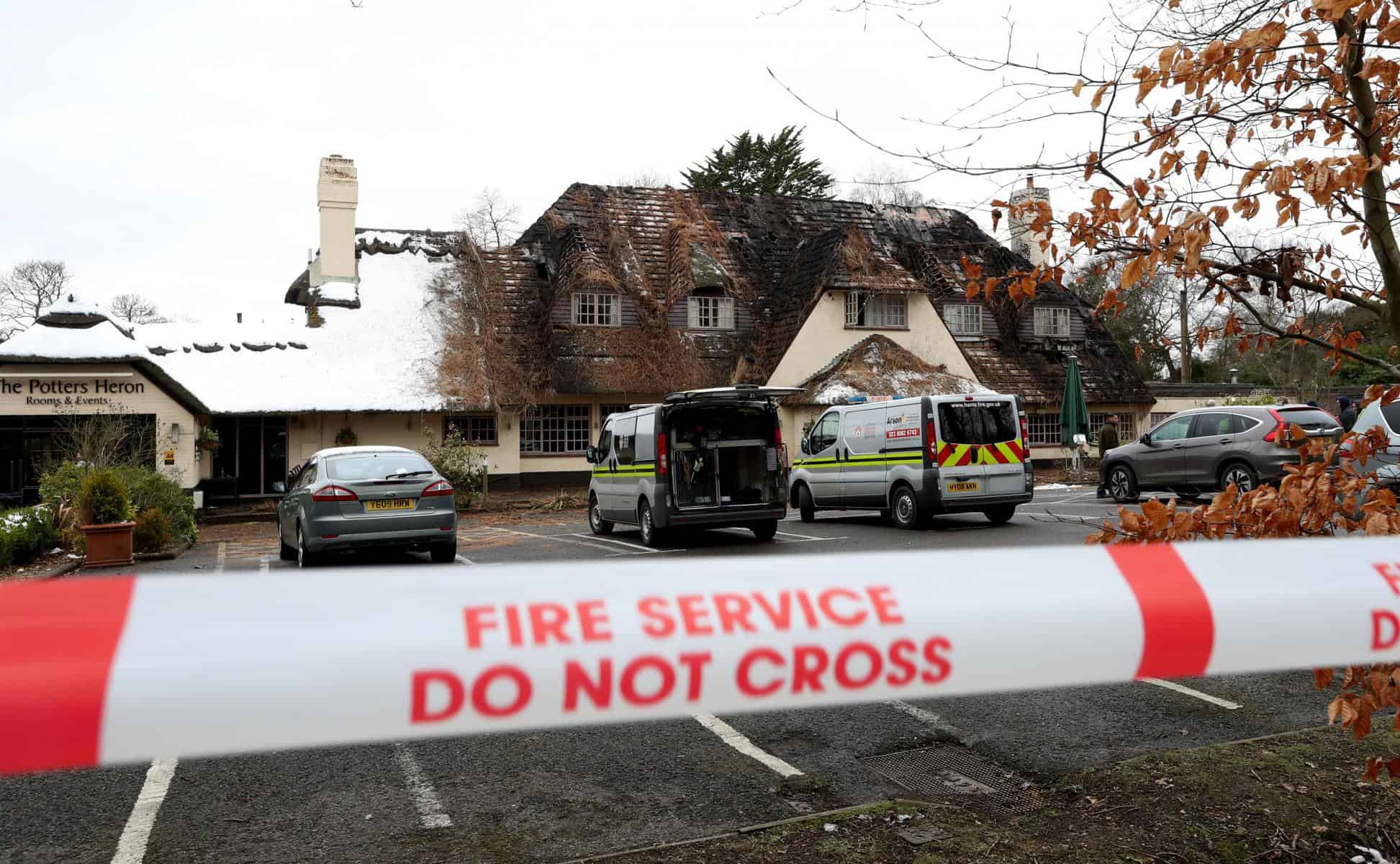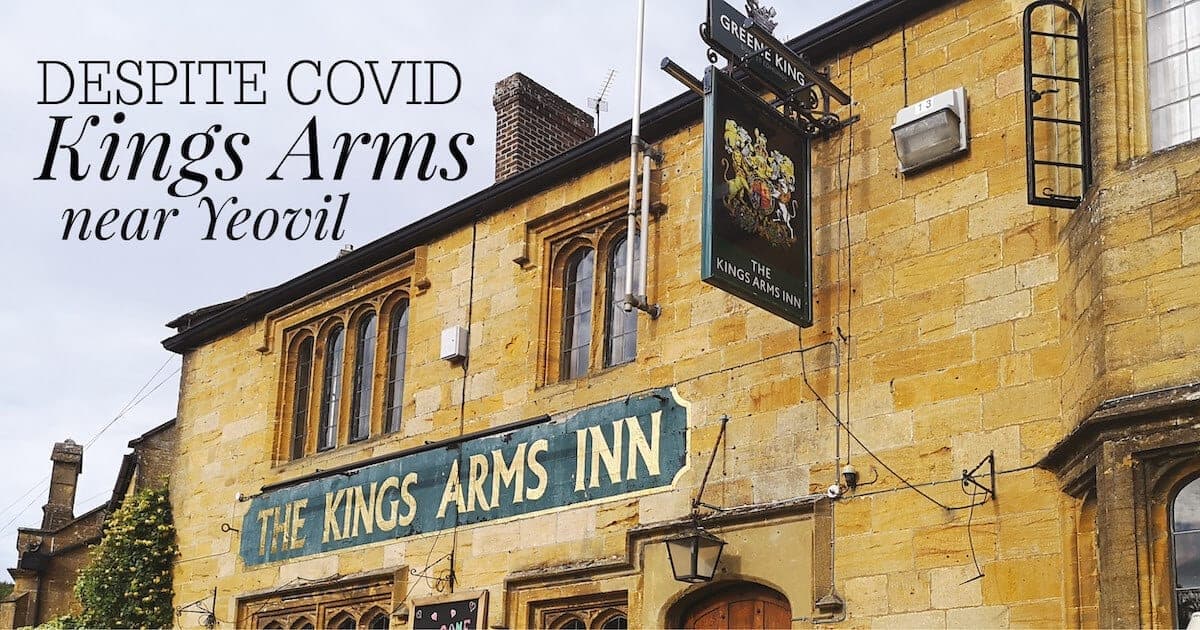
Safety First
Fire regulations are expected to be tightened up when the Grenfell Tower inquiry report is published. New rules on locks could influence your approach if you are thinking of installing or replacing guest room locks. Bill Lumley reports
Issues relating to front door keys and guest bedroom keys can cause apparently needless distress among certain guests who may otherwise enjoy a thoroughly pleasant stay at a B&B.
Many B&B owners understandably choose not to fit locks to the bedroom doors: it is their house, they know all the guests staying in their property, or maybe they simply do not think it is in the spirit of their business to suggest a guest’s bedroom should need locking.
Meanwhile many B&Bs are listed buildings whose features simply cannot be altered or holes drilled in their walls and therefore cannot accommodate door locks.
Whatever the reason is for no lock on B&B bedrooms’ doors, some guests will always balk at it, expressing concern or horror that they and their belongings should be exposed to such a vulnerability.
They may be seasoned travellers who spend much of their time staying at international hotels where a room key is de rigeur. Or they may simply be conscious that they have brought valuables such as a passport or jewellery to wear out in the evening and anxious that these should not be left at the mercy of any passing chancer.
If you are adamant that your property does not attract theft, and therefore should not require bedroom locks, you may still find yourself accommodating both types of guest upset at the lack of a key by installing a safe in each bedroom. This ticks most of the boxes.
InSafe for example designs, manufactures and installs all grades and sizes of safe. And for those B&B owners put off by the cold, chiselled and incongruous appearance of a safe in their luxury guest bedrooms, as well as bespoke safes and conventional safes the company even produces designer safes. It purports to be able to convert any of its safes into a designer item, with the addition of such features as high-shine finish, different colour options, bespoke jewellery trays, drawers and cupboards, tinted mirror walks, interior LED lighting, glass shelving and leather trim.
You may however decide to install bedroom locks in your B&B. According to Key Step Solutions CEO Andrew Evans, which produces mechanical reporgammable locks, locks themselves of whatever variety are not just about keeping your guests’ belongs safe.
If you are going to bite the bullet and install locks in some or all of your bedrooms, you are advised to make sure the result is compliant with fire regulations, he warns.
“Legislation may seem harsh, but non-compliance can result in loss of life, loss of revenue, fines and imprisonment,” he says.
Like an air steward whose top priority is passenger safety, as a B&B owner your primary concern is that your guests enjoy their safe stay. As you will know, fire safety in a hospitality environment is delicate: you must protect various areas with different environmental conditions such as guest areas and the kitchen, and you need devices that quickly detect the first sign of fire and lead your guests safely out of the danger zone.
Crucially, the fire protection system must be highly reliable. There is little more annoying than a false alarm.
“People are particularly vulnerable to the effects of smoke and toxic fire gases when they are asleep,” says Evans. “Guests sleeping in B&B bedrooms are especially at risk, as they are probably not particularly familiar with the premises and associated escape routes. They may be tired after travelling for many hours, or they may be deeply asleep having gone to bed late or having consumed alcohol, all of which might leave them in a disorientated state when first awakened by the sound of a fire alarm.”
The dangers of fires in guest houses, ins and hotels was formally recognised in the UK after the Rose and Crown hotel fire in Saffron Walden in 1969, which resulted in 11 deaths. This led to such properties being the first premises to be designated as requiring a fire certificate under the Fire Precautions Act 1971.
The main legal responsibilities are the same for even the smallest guest house. B&B owners need to be aware of the Fire Safety Order (FSO); the current law in England and Wales. The FSO nominates one individual as the ‘Responsible Person’ for a building – generally deemed to be the owner, occupier or employer.
The Future of fire regulations
Fire safety is under massive scrutiny after a number of high-profile fires in large buildings including Grenfell Tower and the Glasgow Arts School. “It is only a question of when the fire regulations will be overhauled, not if,” warns Evans. “At present, only new builds or refurbishments need to comply with all the current regulations. It is likely older guest houses and hotels will in future have to comply with any current regulations and that fire inspections will be more frequent and stringent.”
He suggests current regulations and standards in place to ensure the effectiveness of fire doors are inadequate and subsequently put lives at risk. He predicts legislation will be introduced to enforce a minimum six- or 12-monthly inspections of all fire doors in multi-occupancy properties.
All Key Step’s electronic RFID Locks pass a stringent fire safety test in a laboratory where a door with one of locks fitted is burnt to destruction, he says. “No matter what you use for your door locking system in your guest house, make sure you have locks that have passed EN 1634-1:2014 – Fire resistance & smoke control for a minimum of 30/60 minutes,” he says.
The company also fits a fire Intumescent fire protection kit around its locks. “This is something you should also check with your lock supplier especially for new installations,” he says.
Fires are the hospitality sector’s worst nightmare. They damage property, injure employees, put people out of business and take lives. If the worst should happen right now, you must be confident that your evacuation plan and fire safety equipment would perform.
There is of course a sizeable cost involved in fitting any locks, and fitting Key Step’s RFID system is not cheap. But Evans says: “The problem is the opportunity cost. It’s like buying a car. It’s got to have four wheels and a steering wheel. It doesn’t matter if you are buying a Ford Fiesta or a Rolls Royce Silver Shadow. Small cars cost more than big ones in ratio terms.
“The problem that B&B owners and small hoteliers have is that they have to buy the software, and the bigger the property, the lower the price drops.”
It is worth investigating the opportunity to spread the cost. Evans says: “We have just done a deal for someone and let him spread his payment over 12 months because he couldn’t afford to do it any other way. It’s a challenge, much like that of meeting fire regulations. I’m sure new fire regulations will kick in after the Grenfell enquiry,” he says.
Mechanical reprogrammable locks
The first mechanical reprogrammable card lock was invented in 1976 by Tor Sørnes, who had worked for VingCard since the 1950s. The first card lock was installed in 1979 in the Westin Peachtree Plaza Hotel, Atlanta, USA. “This product triggered the evolution of electronic locks for the hospitality industry that we all take for granted every time we open a bedroom door when staying away from home,” says Evans.
The way in which you receive your guests expresses a great deal about how you value them and gives a first impression of the quality of service they can expect during their stay, he insists. “Gone is the bulky room-key, and the risk that yesterday’s guest may return to attempt to gain access into the same room, along with the inconvenience and costs incurred to change the lock.
“Most establishments have overcome these issues by installing electronic locking systems that guarantee guest security and convenience. A magnetic card or RFID tag can be programmed for an individual for a specific period of time, making the card or tag invalid for use after the guest has checked out. An electronic locking system supports access to specific areas, and places restrictions based on each person’s need, whether they are paying guests, visitors, workmen or employees.
It is an urban myth that guest information or data is stored on the magnetic key cards in the UK, just a coded algorithm which is encrypted so it cannot be read by just anyone. A card that works in one guest house or hotel will not open a door in another as each has a unique master system code.
Hotel guests want to feel safe and secure in their temporary home, and you as the owner have a duty to protect them. Good security benefits everybody, whether hotel guests, temporary staff or B&B owners. When security is taken seriously as a service, the result is a well run, efficient establishment with an excellent reputation and booming business. “Security should be another guest service, just like the bar, breakfast, sauna or turn-down service,” says Evans. “It should not be seen as an overhead, but as a value-adding service, which can be used to promote your business as a safe haven and secure environment.”
“We have to look beyond “it’s just a system for letting guests in rooms” – It is probably one of the most critical systems you have in your hotel after power and water!” concludes Evans.
Entrance and Exits
Minimise the number of entrances, one is preferable, although not always possible. Reducing the entrances allows owners, management and staff to monitor who is entering and leaving the hotel.
Emergency exits should be alarmed so that staff will be immediately notified if the door is opened or tampered with. Signs to this effect should be placed on emergency doors
What Time is it?
Ensure the time is correct on all the locks in the property. If you are in the UK you may have to set the time in your locks twice and year to cope with BST and GMT. If the time is incorrect any log information on who has used the lock will be useless in the event of an incident.
Emergency Access cards
Every door entry system has emergency cards, which are pre-made cards will allow you to let guests into rooms if there is a system fault or a power cut that prevents you cutting room keys. You should always keep your emergency keycards available and have a manual process for issuing the cards in the event of an incident. It is worth practicing the drill with staff in the same way you have a fire drill.
On some systems the emergency cards expire after a period of time so it’s critical to check every six months.
Well Maintained
Basic maintenance is essential. Many of the electronic locks have batteries that should be changed before they go flat otherwise the lock will lose its programme. Cleaning of the magnetic card reader will ensure guests are not fumbling to get into their rooms. Housekeeping should report any lock issues and clean the reader every month.
Master Keys
The traditional mechanical master key should be kept locked away in the safe at all times. It shouldn’t be on a bunch of keys even the maintenance managers. If you loose the master key your only option is to recode all the key barrels in the locks, which no one wants to, do.
Cards
Modern luxury B&Bs may want to enhance their attraction by using guest key cards or access tags, but make sure your own cards and those of any staff are plain, so if they are lost they cannot be linked to your property. If a guest brings a card back and says it doesn’t work, destroy the card and use a new one. Like everything the magnetic cards wear out over time and lose their magnetism. Any staff cards that are lost should be cancelled and details recorded in a log in case you have any incidents in the hotel.



